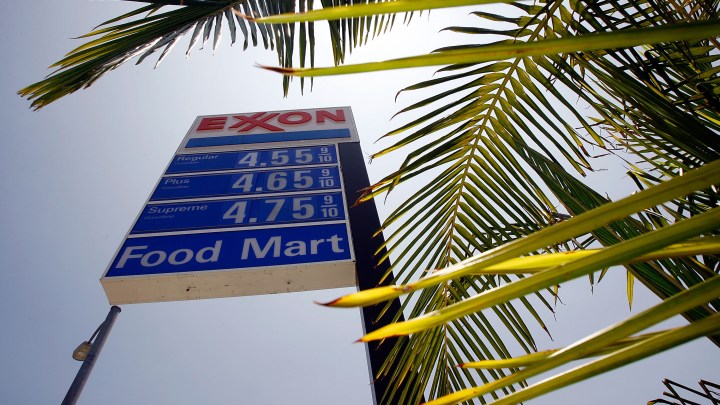
Rising oil prices fuel a windfall for the industry

It’s a pretty good time to be an oil company. Riding the “Putin price hike,” Exxon Mobil reported first-quarter profits of $5.5 billion on Friday — more than double what it made in the same period last year.
What’s Exxon going to do with the windfall created by crude prices around $100 a barrel? A big chunk of it will be channeled into stock buybacks to the tune of $30 billion by the end of next year. For the Joe Biden administration and environmental groups, those are fightin’ words.
The administration wants American energy companies to produce more oil and natural gas, at least in the short term. But that’s easier said than done, according to energy industry analyst Paul Sankey. Texas oil fields are not immune to what’s happening in the rest of the economy.
“You’ll find that they’re actually short labor. They’re short steel for piping. They’re short, arguably, high-quality rigs,” Sankey said.
About a decade ago, big firms like Exxon were investing more in wells and equipment. But as oil and gas prices flatlined in the mid-2010s, shareholders didn’t see big returns, said Stewart Glickman with the investment research firm CFRA.
So, for the past few years, the oil investor’s mantra has been less “Drill, baby, drill” and more “Dividend, baby, dividend.”
“The industry finally got the message, got religion, and really focused more on placating investors,” Glickman said. “And that meant more dividends and stock buybacks.”
Oil companies are also scared that these high prices won’t last long enough to justify more drilling, Glickman said — especially if those prices drag down the rest of the economy.
“Oil at above $100 per barrel, I think, runs the risk of pushing the economy into recession. They really don’t want that,” he said.
Because then, oil prices would really drop. Meanwhile, outsize profits and stock buybacks are inviting more scrutiny from policymakers and environmental advocates.
“Congress can help stop this and deliver relief to consumers with bills that tax these windfall profits,” said Sujatha Bergen with the Natural Resources Defense Council.
Congress did pass a windfall profits tax on oil companies way back in 1980. But that law expired in 1988, and no similar proposal has gained much traction since then.
There’s a lot happening in the world. Through it all, Marketplace is here for you.
You rely on Marketplace to break down the world’s events and tell you how it affects you in a fact-based, approachable way. We rely on your financial support to keep making that possible.
Your donation today powers the independent journalism that you rely on. For just $5/month, you can help sustain Marketplace so we can keep reporting on the things that matter to you.











